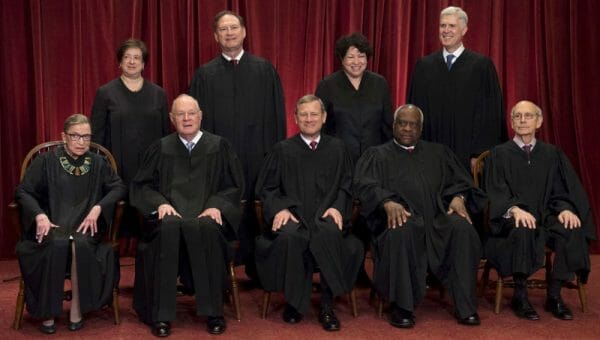PA Bill Number: HR393
Title: Designating February 28, 2026, as "HIV is Not a Crime Awareness Day" in Pennsylvania.
Description: A Resolution designating February 28, 2026, as "HIV is Not a Crime Awareness Day" in Pennsylvania.
Last Action: Referred to Judiciary
Last Action Date: Jan 21, 2026
What the Supreme Court Decides to Hear :: 06/09/2018
Fayetteville, AR –-(Ammoland.com)- The Supreme Court’s decision recently to refuse to hear a challenge to a law restricting abortion access in Arkansas raises the question of the implications of the cases that the highest court chooses to consider.

The Arkansas case deals with a law regulating the use of medications that induce an abortion. The Supreme Court did not offer any ruling, but instead simply declined to take up the appeal against the law.
Those of us who are not lawyers can be confused by the implications of denials like this. Does this mean that the court approves of all laws restricting access to abortion? Does it mean that Roe v. Wade is soon to be overturned?
No. It simply means that the court didn’t want to hear this particular case. According to FindLaw.com, the possible reasons for that are several: there is no conflict in law, the case isn’t sufficiently important, no justice has an interest in the subject, or the lower courts haven’t disregarded prior rulings. I find it hard to believe that any of those reasons apply to this case, but this is what at least some legal scholarship offers for why cases, in general, are not heard.
This is not the space to debate the morality or legality of abortion. My point here is to show that even when a case looks to an outside observer like one that needs review, the justices don’t have to agree.
There is a parallel here with last year’s refusal to hear an appeal against Maryland’s “assault weapons” ban and another regarding carrying firearms outside the home. The consequence of that was to leave lower court rulings in effect.
As with the Arkansas abortion law, whatever we may think about the subject of guns, it seems obvious that these cases are important and are being treated differently, depending on which states we live in, despite precedents that make the laws in question unconstitutional—at least in the view of someone who has spent decades reading, writing, and teaching English. What language judges use is for others to say.
I am told by advocates of gun control that when the Supreme Court declines to hear a case, this means that the justices agree with whenever decisions the lower courts have come to. Specifically, they assert that bans on AR-15s and the like fit in with what Antonin Scalia said about some regulations being permissible, that the denial of certiorari means that such bans are not unconstitutional.
They need to believe this, but the reality is that with the current composition of the Supreme Court, there will be a lot of controversies in the law that go unresolved. The Masterpiece Cakeshop decision this week is yet another example of this.
The law moving slowly can be a protection in that leaping to conclusions and to policy choices without weighing the facts and the competing interests is a bad idea—see the U.S.A. PATRIOT Act as an example. Or the NY SAFE Act. At the same time, when the Constitution and precedent is clear, leaving disparities in the exercise of rights is also wrong. But the court’s dodging does not imply that anyone’s pet whims are already enshrined in law.
About Greg Camp
Greg Camp has taught English composition and literature since 1998 and is the author of six books, including a western, The Willing Spirit, and Each One, Teach One, with Ranjit Singh on gun politics in America. His books can be found on Amazon. He tweets @gregcampnc.
https://www.ammoland.com/2018/06/what-the-supreme-court-hears/#axzz5HjvHCYS0



